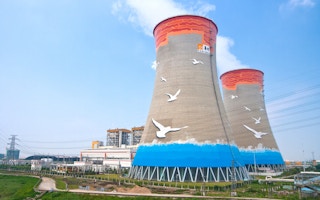If China and the United States start pointing fingers across the table at the key UN climate talks in Paris in 2015, accusing each other of not doing their share to fight climate change, there may now be a way to measure which superpower’s claims are more accurate – and so far it won’t be the American negotiators who come out on top of that argument.
As governments and other climate organisations gear up for efforts to agree a new global deal to curb climate change and deal with its impacts in 2015, a collaboration between a California nonprofit and the Stockholm Environment Institute has produced an online tool to grade the equity of emission reduction pledges that countries have made and will continue to make.
Tom Athanasiou, executive director of EcoEquity, explained that his organisation’s Climate Equity Pledge Scorecard and Climate Equity Reference Calculator are based around the idea that every country has a “fair share” of emissions reductions to make, which can be measured by comparing that country’s historical responsibility (or total amount of emissions to date) and its present capacity, or capability, for reducing emissions.
“
When you have two countries such as the United States and China, which have really different economic structures, how do you compare the effort being made by the United States to the effort made by China?
Tom Athanasiou, executive director of EcoEquity
“The problem here is the problem known as comparability of effort,” he explained. “When you have two countries such as the United States and China, which have really different economic structures, how do you compare the effort being made by the United States to the effort made by China?”
This is a familiar, and important, political problem. “It’s a lot harder for you to make a strong effort if you feel that other people are just taking advantage of you. That same dynamic maintains at the international level. If you believe, as I do, that the problem is that we’re in an emergency situation, and we need an emergency global mobilisation, than we have to have some notion of when a country is doing its fair share and when it’s not.”
The tool that Athanasiou helped to create aims to do just that. “It’s a guide to negotiators, and a guide to campaigners, and a guide to journalists,” he said.
“These tools are so that we can say, actually, these countries are clearly proposing to do a larger fraction of their fair share than other countries … so at least we can identify leaders and laggards.”
Judging by the scorecard, which is a simplified version of the calculator, many of China’s pledges are significantly more ambitious than those of the United States. The scorecard suggests that China has in fact pledged to reduce more than its “fair share” of emissions, while the US falls well under that mark.
Two other countries whose scorecards stand out, according to Athanasiou, are Costa Rica, a “leader,” and Singapore, a “laggard.”
He said that the goals of the project are both short-term and long-term. “We have a number of hopes. One is that the negotiations themselves will be eased by this process, and facilitated, and that there will be, on balance, a greater chance of success against the background of this analysis than there would be without it.”
Looking farther down the road, “from a longer term perspective, we can get the concepts of fair shares into play in a way that actually makes sense, because we believe that we’re confronting a civilisational emergency, and that there’s no way to deal with it except against a background in which we’re all together, and we all have to do our fair shares,” he said.
Samuel Mintz is an AlertNet Climate intern.

















